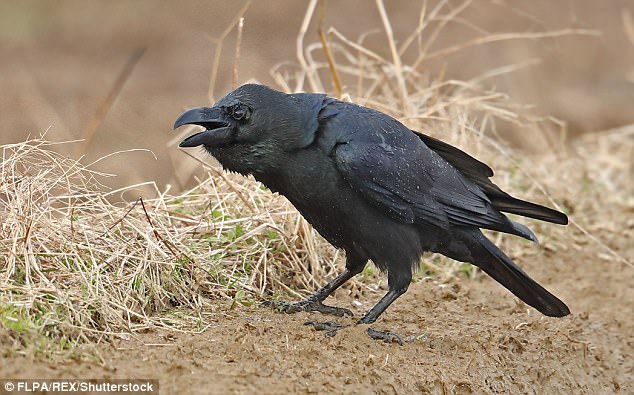Crows have long been thought of as symbols of death.
But despite their sinister reputation, it appears these clever corvids also have a softer side according to Daily mail.
Researchers have found that after getting into a fight, crows attempt to ‘kiss and make up’ by touching and preening each other – even if it’s with a relative stranger.
Crows have been studied for their intelligence and belong to a family of birds called corvids, which also include smart winged species like magpies and nutcrackers.
In recent years the abilities of corvids to use tools and think logically have increasingly become evident.
While the birds can be solitary creatures they more often travel in large flocks – called a murder.
Here they form long-lasting relationships – mates, for instance, tend to stay with each-other for life.
A new study by researchers wanted to see how unfamiliar crows interacted with each other.
The research team led by Miriam Sima and Simone Pika used carrion crows to determine whether there was any difference in levels of aggression and violence between crows that didn’t know each other.
The birds were kept in a cage where food was placed – birds would fight more when the food was limited, often causing tempers of a mildly aggressive nature.
The study found that after the food was gone the crow that had been aggressive would seek out the victim of its violence and ‘apologise’ by tiding its feathers.
Sometimes, however, aggressors would keep their distance and the victim would seek amenity from a stranger who had not previously been involved in the fight for food.
The study, is the first to show that these birds engage in flexible reconciliation and third-party consolation – they kiss and make-up, in other words
‘To buffer conflicts, various species use post-conflict behaviour, such as reconciliation or third-party affiliation,’ the researchers wrote.
‘Both behaviours have predominantly been studied in non-human primates. However, recently, studies revealed post-conflict behaviour in other mammalian and some bird species (e.g., corvids).
‘While third-party affiliation has been reported in several corvid species, reconciliation has only rarely been observed.’
Other animals, including some with a bad reputation like hyenas, have been known to do the same.
Ms Sima believed that the findings support the idea that social animals only seek reconciliation if important relationships have been disrupted.
N.H.Kh

